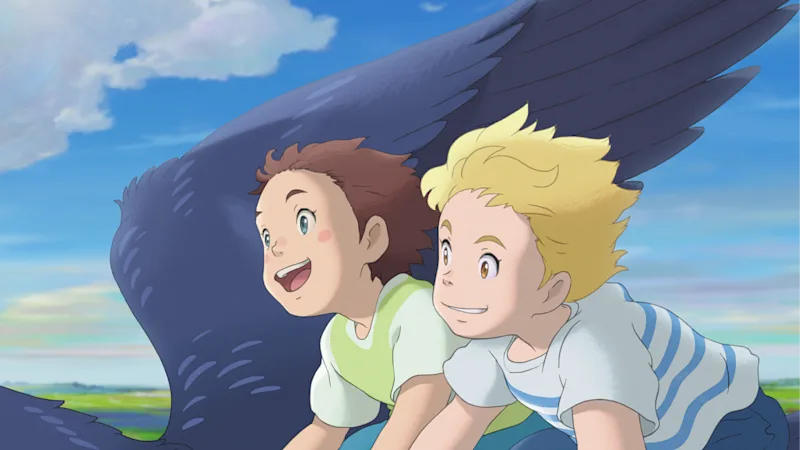For filmmaker Shannon Tindle, Ultraman: Rising was worth the wait — even if it did take 23 years to become a reality.
The animated superhero adventure reintroduces the iconic Japanese character, who originated in 1966 and, in the decades since, has become the face of one of the most storied franchises in all of pop culture. (The Ultra Series has generated 44 movies, amongst countless other media outings.) "I was introduced to Ultraman when I was about five or six years old. I would watch it with my dad in Kentucky," Tindle fondly recalled following an Academy-hosted screening of the movie.
"That image of a giant red and silver superhero really stuck in my head," the director said. "I never forgot about it. And then I moved to L.A. in '97 and reconnected with the character, and I started to think, 'This is a really incredible character that's huge in certain parts of the world, but most people don't know them here in the U.S. So, how could you engage with an audience with a character like Ultraman?'"
His answer: "Well, what if he had to raise a giant baby kaiju?"
In Ultraman: Rising, the titular hero is Ken Sato, a famous baseball player who must return home to Tokyo to take up the mantle of Ultraman. But after saving the day and defeating a city-leveling monster, he is forced to reluctantly adopt her 35-foot-tall, fire-breathing baby kaiju. To help realize his vision, Tindle (who previously served as a character designer on films like Coraline and Kubo and the Two Strings) enlisted frequent collaborator John Aoshima first as a story supervisor and eventually as a co-director.
"I was a little freaked out because of the legacy that the hero holds, and it's so personal to me, because it's a Japanese superhero that I grew up on," Aoshima said. "I came in with this perspective of, 'How does the Ultraman mythology layer over that without overpowering this beautiful message and story?'"

In bringing Ultraman Stateside, the filmmaking team worked closely with artists back in Japan to get their feedback at every turn. The hope was that they would not only retain the spirit of the character, but honor his heritage in the very style of the movie. "We knew that we wanted to draw from Japanese pop culture, since Ultraman comes from that place," said Tindle.
"We took all these influences — from Katsuhiro Ôtomo's Akira, Hideaki Anno's Evangelion, and all of the anime and manga that Chen and I both love — and we provided those influences to our art department," Aoshima added, "and they worked their magic."
Ultraman: Rising also benefited from two perhaps unlikely inspirations: 2018's Oscar-winning Spider-Man: Into the Spider-Verse, and visionary auteur Guillermo del Toro. The former, Tindle says, inspired the creative team to push their stylization to new heights. "For years in animation, we wanted to do things that were more stylized and not so photorealistic," explains the director. "Spider-Verse was the first big studio film that really leaned into that, and it gave us the permission to push [our style] as well. So, incorporating the linework or zipatone textures that you would see in old comic books, we wanted to make sure that we had an interesting new style, but it had to support the narrative. It can't just be to look cool."
Del Toro, meanwhile, advised the team to begin the film with a prologue that would easily catch the audience up on more than 50 years of Ultraman lore. "We knew that there were going to be a lot of people who didn't know who Ultraman was," says Tindle. "It was actually another huge Ultraman fan, Guillermo del Toro, who suggested the prologue as a way to get inside the character's head a little bit. It's something that he's employed to brilliant success in his films. I loved the idea, I just wanted to make sure that we were doing it in a different way... So, that was great advice."
Watch the full Academy Conversation below to hear more from Tindle, Aoshima and their creative team, including Sunmin Inn (Art Director), Hayden Jones (VFX Supervisor), Marcos Mateu Mestre (Production Designer), and Scot Blackwell Stafford (Composer).
RELATED CONTENT:
Your Guide to 2024's Most-Anticipated Summer Movies
'The Garfield Movie' Director Reveals How He Knew Chris Pratt Was Perfect for the Part (Exclusive)
'Atlas' Director Brad Peyton on Casting Jennifer Lopez to Save Humanity From AI







